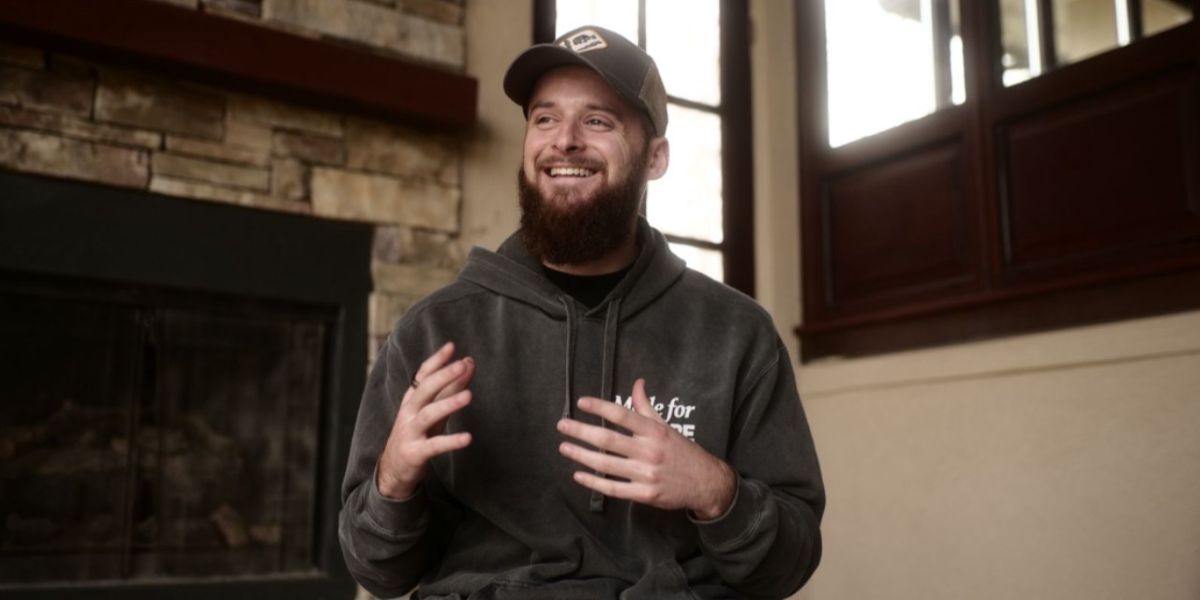Image commercially licensed from: Unsplash
The documentary “Elmore Leonard: But Don’t Try to Write” recently debuted on Amazon, commemorating the influential author Elmore Leonard. The film, released a decade after Leonard’s passing, is a collaborative effort by writer and director John Mulholland and producer and editor Richard Zampella. This documentary delves into Leonard’s legacy and his profound impact on generations of writers. It offers an intimate look into Leonard’s life, with insights from his colleagues, friends, and family. The documentary is enriched by exclusive images and previously unreleased footage, creating a fitting tribute to one of the literary greats of our time.
Elmore Leonard, renowned for his forty-six novels, such as “Get Shorty,” “Out of Sight,” and “LaBrava,” was celebrated for his contributions to the crime genre. Beyond crime fiction, he showcased his prowess in various genres like westerns, comedies, and dramas. A talented storyteller, Leonard’s work resonated with readers worldwide, solidifying his place in literary history.
The documentary’s title, “But Don’t Try to Write,” encapsulates Leonard’s philosophy that simplicity speaks volumes in both writing and life. According to Mulholland, this approach resonates with Leonard’s mastery of the principle of ‘less is more.’ Mulholland, who had previously interviewed Leonard for “Cooper and Hemingway: The True Gen,” explains that “Elmore Leonard: But Don’t Try to Write” is distinct from his previous work. Unlike “The True Gen,” which delved into Ernest Hemingway’s friendship with Gary Cooper, this new documentary centers on Leonard’s remarkable abilities as a novelist and his unique approach to character and place development.
The film features insightful interviews with figures like Jim Born, Mike Lupica, Wendy Calhoun, Neely Tucker, and Graham Yost, among others. It also presents thirty minutes of unreleased interview footage with Elmore Leonard, offering an in-depth perspective on his craft. Through these conversations, the documentary paints a vivid portrait of Leonard’s profound influence on culture and language.
One of Leonard’s standout qualities was his portrayal of complex characters. His depiction of Black characters was particularly notable for its depth and authenticity, while his female characters defied traditional norms, showcasing strength and agency. His exploration of themes like race, gender inequality, and societal disparities added depth to his narratives. Mulholland’s documentary examines Leonard’s representation of women, delving into the challenges they faced due to misogyny. Mulholland ensured that women’s voices were integral to the storytelling, reflecting Leonard’s own ethos.
The documentary breaks from a chronological account of Leonard’s career to discuss themes of gender, race, and societal issues. Mulholland’s intention was to emphasize the evolution of Leonard’s work, spanning his early westerns to his later crime novels. The film acknowledges Leonard’s rough patch with film adaptations in the 1970s and aims to highlight the breadth of his contributions across genres.
Leonard’s exploration of the struggles faced by society’s have-nots is another central theme. These characters, often making desperate choices due to limited options, offered Leonard a canvas to dissect societal challenges. His nuanced depiction of race added layers to his narratives, showing that poor choices were not confined to any particular demographic.
The documentary’s narrative style, akin to Leonard’s character-driven approach, offers a multi-dimensional experience for the audience. The film captures Leonard’s ability to give characters unique perspectives while maintaining a third-person viewpoint. Leonard’s humor is another key aspect of his work. He seamlessly integrated humor into character dialogue, creating an engaging and subtly comedic narrative.
Leonard’s personality shines through his writing, characterized by lyrical simplicity and concision. This mirrors his own soft-spoken, modest, and understated demeanor. His writing never overtly draws attention to itself, aligning with the philosophy of ‘less is more’ that he shared with Gary Cooper and Ernest Hemingway.
John Mulholland & Richard Zampella’s dedication resulted in a documentary that captures Leonard’s career trajectory and essence, with never seen before footage of Elmore Leonard.
The release of “Elmore Leonard: But Don’t Try to Write” marks a significant achievement for Zampella, who had long aspired to follow in the footsteps of his father’s work in supporting the arts. The documentary’s appearance on public television channels across the country reflects the culmination of Zampella’s passion for the arts and history.
In conclusion, “Elmore Leonard: But Don’t Try to Write” is a tribute to a literary luminary who left an indelible mark on multiple genres. The documentary explores Leonard’s legacy through the lens of his character-driven storytelling, humor, and insights into societal challenges. This intimate portrayal of a masterful writer serves as a testament to Leonard’s enduring influence on literature and culture.
Alternate Pull outs:
Exploring the Legacy of Elmore Leonard: A Documentary Journey
The documentary film “But Don’t Try to Write” delves into the remarkable literary legacy of influential author Elmore Leonard. Written & Directed by John Mulholland and Edited & Produced by Richard Zampella, this film presents an insightful exploration of Leonard’s profound impact on the world of literature and storytelling.
Elmore Leonard: A Multifaceted Literary Force
Elmore Leonard, renowned for his forty-six novels, including works like “Get Shorty,” “Out of Sight,” and “LaBrava,” was a literary luminary whose influence spanned multiple genres, from crime novels to westerns, comedies, and dramas. The documentary delves into Leonard’s literary versatility and his innate ability to captivate readers worldwide with his engaging narratives.
Capturing Leonard’s Essence Through Interviews and Footage
The documentary features interviews with Leonard’s colleagues, friends, and family, offering an intimate glimpse into the man behind the words. The film is enriched by exclusive images and previously unseen footage that provide a deeper understanding of Leonard’s life and creative process. Director John Mulholland’s adept interview techniques allow for candid conversations that reveal Leonard’s writing philosophy and the subtle nuances of his craft.
A Master of “Less is More”
The film’s title, “But Don’t Try to Write,” reflects Leonard’s philosophy that less is more in both writing and life. Mulholland’s choice of title resonates with Leonard’s minimalist approach to storytelling, where art should speak for itself without unnecessary embellishment. This approach reflects Leonard’s mastery of economy and conciseness in his prose.
A Journey Through Leonard’s Career and Themes
The documentary traverses the trajectory of Leonard’s career, from his early westerns to his transition into modern urban crime novels. It highlights his ability to craft diverse characters, intricate plotlines, and vivid settings. The film also emphasizes Leonard’s courage to tackle complex societal issues, including racism, sexism, criminal justice, and corporate misconduct.
Character-Driven Perspective and Lyrical Simplicity
Leonard’s signature writing style, characterized by a character-driven perspective, comes to life in the documentary. The film mirrors Leonard’s approach, offering a multidimensional view of characters without being confined to a single viewpoint. Leonard’s lyrical simplicity and concision in his writing are mirrored in his personality—soft-spoken, modest, and witty.
A Humorous Edge and Social Commentary
The documentary showcases Leonard’s unique humor, a thread woven into his characters’ interactions and dialogues. This humor adds depth and authenticity to the characters without overtly highlighting its presence. Beyond entertainment, Leonard’s work is a vehicle for social commentary, addressing themes of gender inequality, racial dynamics, and societal disparities.
Challenges and Triumphs of Documentary Production
The documentary’s production journey had its challenges, including condensing the content for a broadcast version while maintaining the essence of Leonard’s legacy. The filmmakers, John Mulholland and Richard Zampella, collaborated to craft a coherent narrative that spans Leonard’s life from childhood to his passing in 2013. Their dedication and attention to detail are evident in the high-quality production and seamless storytelling.
A Proud Achievement and Ongoing Influence
The release of “But Don’t Try to Write” marks a significant achievement for the filmmakers, bringing Elmore Leonard’s rich legacy to a broader audience. The documentary celebrates Leonard’s enduring impact on literature and his unique ability to navigate the complexities of human nature and society through his characters and stories. Through insightful interviews, exclusive footage, and a meticulous exploration of his work, the film pays homage to one of the greatest writers of recent times.
As the documentary airs on public television stations across the country and streams on Amazon, it stands as a testament to the enduring influence of Elmore Leonard and the collaborative efforts of John Mulholland and Richard Zampella in capturing the essence of his remarkable life and work.
I: @elmoredoc
Rent or buy on Amazon: Watch Elmore Leonard: “But Don’t Try to Write” | Prime Video (amazon.com)








